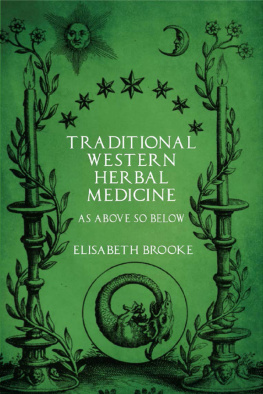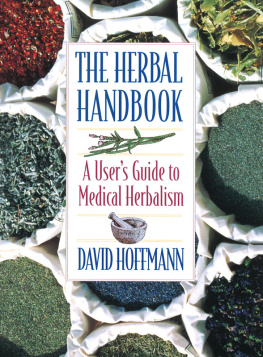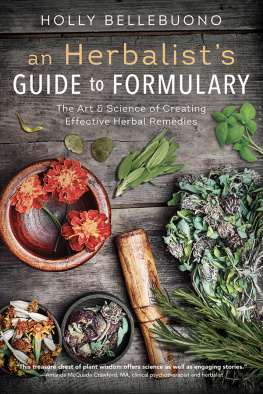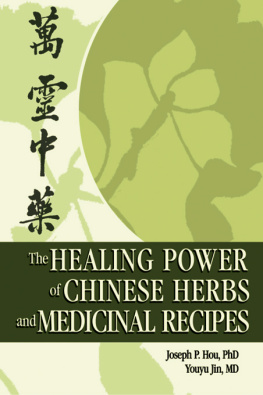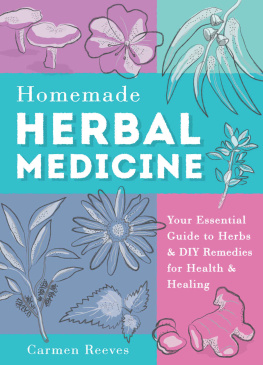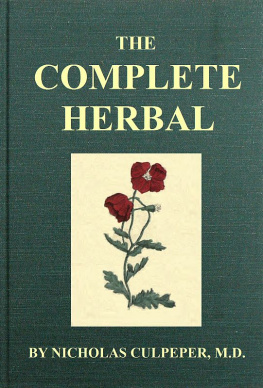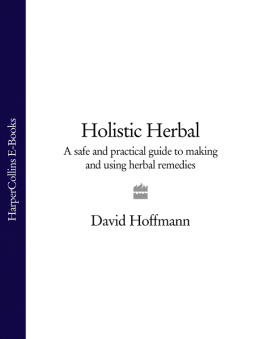Firstly, thanks to Melinda McDougall and Oliver Rathbone for asking me to write this book and publishing my backlist. To the women of the Magical Herbalism and Astrology and Medicine workshops. Particular thanks to Joanna Watters and the participants of the Astrology and Herbs intensive in Lefkas, Greece, who worked through my ideas on Temperaments and Herbs and gave me many valuable insights and very helpful feedback. To Maggie Hyde and Geoffrey Cornelius of the Company of Astrologers, where I learned and later taught Traditional Astrology and Decumbiture. To the librarians of The Classical Association Library, The Welcome Library for the History of Medicine and the British Library for their help in sourcing the material and to the libraries themselves for being there; what an extraordinary resource they are, and how lucky we are to have them. To Duncan Barford for his meticulous editing and Cecily Blench of Aeon Books for her help.
AFTERWORD
T his book started with Greece in the sixth century BCE and has travelled to the twenty-first century. Today there is a small revival of interest in these traditional techniques among Western herbal practitioners who are looking for a holistic philosophy within which to practise their art. Like medicine post-Enlightenment, herbal medicine is dogged by scientism, by which I mean applying scientific methods to areas that cannot be reduced to objective measuring. Clinical trials on various herbs do add to the body of knowledge and give herbalists a boost when encountering scepticism and ridicule from various interest groups. But herbal medicine cannot be reduced to mechanistic science any more than mainstream medicine can, and have still have a positive outcome.
Dr Lown in his book The Lost Art of Healing (1999). Makes a plea for the art of healing to be restored to its central place in the art of medicine. Medical students, he maintains, should be schooled in the humanities before biomedical sciences to develop sensitivity and compassion. He writes of the importance of touch, rather than checking vital signs, and working with the patient as a whole person, not as a collection of systems, and using words to bolster the patient's vitality and capacity to deal with the lifestyle stressors that are contributing to the sickness.
Herbalists, because they are increasingly trained in university science departments, can fall prey to this mechanistic, piecemeal approach, by using herbs good for x or y, rather than taking in the totality of the patient as a complex, multi-faceted individual. The discipline of traditional diagnosis helps to see the larger picture where the practitioner and patient engage in a dialogue about how best to address their problems and heal the whole person, body, emotions, and spirit.
What, then, for the future? We are lucky in the UK that we do not send our herbalists to jail, nor our astrologers, but herbalism remains a poor relation in the shiny world of complementary medicine. However, in recent years herbal medicine has been at the heart of another movement, which Culpeper would have approved of: radical herbalism. Below, I outline several grassroots movements to bring herbal medicine to the dispossessed.
Herbalists Without Borders, Bristol
This is a collaboration between clinical herbalists, community herbalists, herb growers, and local migrant support projects. They are a branch of Herbalists Without Borders UK, which is affiliated with the International Herbalists Without Borders.
Setting up a clinic is a deeply rooted act of resistance against an unjust global political system that has created such unjust borders, as well as the government's introduction of the Immigration Act 2016, which exacerbates the already extreme difficulties refugees and asylum seekers are facing.
Homelessness, unstable housing, poverty, loneliness, and social isolation, whilst living in a constant state of uncertainty regarding their future and asylum status, are just some of the challenges that people who have fled their homes face daily. Living in such stressful conditions greatly impacts their health.
Herbalists Without Borders believe that herbal medicine is an important part of any healthcare system and can have profound effects individually, as a community, and in wider society. Current projects include: a mobile dispensary for common ailments such as insomnia, anxiety, coughs, and low immunity; the dispensary is taken to existing support projects in the city. They run a free herbal clinic where people needing more in-depth support can access one-to-one consultations with trained
Calais and Dunkirk
Herbalists Without Borders have also been working at the refugee camps in Calais and Dunkirk, to provide medicine and first aid remedies to these very vulnerable people. After the camp in Dunkirk was burned down, funds were raised for a mobile women's centre.
Herbal Unity, Glasgow
The Herbal Unity Collective was set up in Glasgow in late 2015, in response to changes in legislation that restricted access to healthcare among people without immigration papers. The collective is comprised of clinical and lay herbalists, people in the asylum process, massage therapists, growers, and grassroots campaigners. Their politics are aligned with The Unity Centre and No Borders.
They believe that healthcare is a right and not a privilege and should be freely accessible to all people. They aim to achieve this by providing alternatives in the form of a grassroots, free-to-access, patient-centred herbal clinic. They believe that herbal medicine is not only effective, but removes our reliance on the pharmaceutical industry, which is a hierarchical, capitalist system that degrades our environment and our autonomy over our own health.
More than just access, they stand for a healthcare system that recognises diversity, where people can have choice and control over what forms of medicine or other healing practice they wish to use.
They view health holistically, seeing it as made up of our physical, mental, and psycho-emotional selves, but also, they look beyond the individual to the root causes of ill-health in the social, political, and environmental injustices of our society.
They have an anti-oppressive approach to healthcare provision and actively challenge the patient-doctor paradigm, instead working collectively to empower us to feel we have more control over our own health. They actively challenge racism, sexism, classism, ableism, homophobia, transphobia, capitalism, patriarchy, and institutions that exploit, neglect, and degrade us. Police and representatives of the Home Office are not welcome in their clinic space.
Since the collective formed, the project has grown rapidly due to demand. The clinic offers: a drop-in herbal dispensary, herbal consultations and follow-ups, massage, hot food, childcare, herbalism, and a self-care library. They also run a monthly herbal study group, open to all, and a gardening group to develop a medicine garden outside of the space. With so many people using the clinics the cost of repeat herbal medicine has been an ongoing concern. To help with some of the costs they have been growing and foraging as much of the medicine used as possible. They have been making, oils, tinctures, balms, and creams for the clinic. These activities, as well as providing some of the stock for the clinic, have created an atmosphere of self-care and empowerment for people to access their own medication. They have organised a training weekend to share skills and make volunteering at the clinic accessible to anyone who is interested.
Not much has changed. As Culpeper commented in 1651:
I wish from my heart our present State would take this matter into consideration and take a little care for the lives of the poor Commonalty, that a poor man that wants money to buy his wife and Children bread, may not perish for want of an angel to fee a proud insulting domineering Physitian, to give him a Visit. I think it is a duty belonging to the Keepers of the Liberty of England I would help my poor brethren in this particular if I could, but I cannot. (Culpeper, 1651a, p. 172.)

